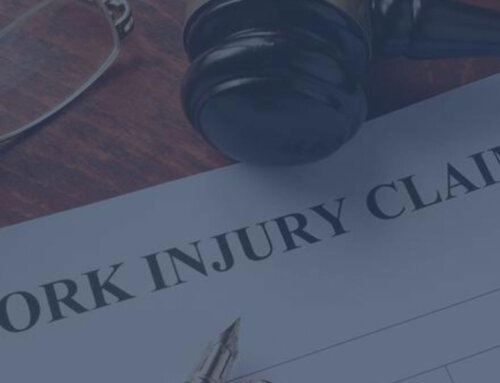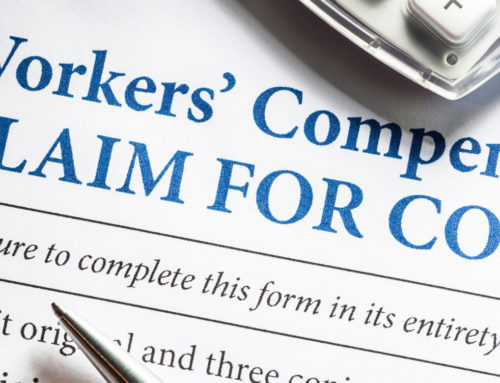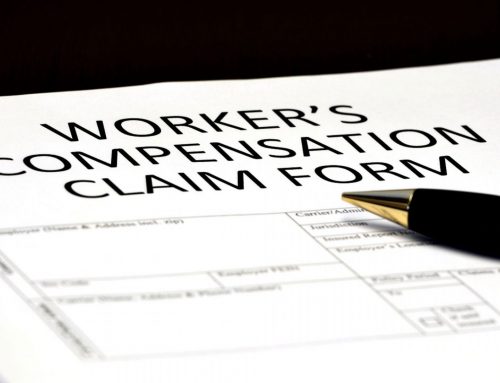Workers’ compensation is complex and detailed, and you are definitely not alone if you feel a bit lost in the process. Clients usually come to us with a lot of questions about the basics of workman’s compensation and what they should expect. Because there is so much to learn in this area of law (and because it is always changing), it can be hard for employees to find the answers for which they are looking.
Work Comp Basics: What Is Workman’s Compensation & What Can It Do for Me?
Most people have already heard of workers’ compensation (aka workman’s compensation) at some point or another. If you were injured on the job, you are probably wondering exactly how it works and whether you will be covered. Each injured employee’s situation has to be considered individually, because there are many nuances that can impact eligibility. Here is a general overview of what could be available to you if you are an injured worker.
What Is Workers’ Compensation?
Workers’ compensation is a system that can provide injured employees with all of the following:
- Relief from medical bills
- Lost wages
- Other costs associated with work injuries
Simply put, if you were injured while working for your employer, you should not be responsible for the costs and expenses associated with your injury.
Additionally, workman’s compensation is an “exclusive remedy.” This means that an injured employee can generally only “sue” their employer through the workers’ compensation system. The law generally does not allow an injured employee to sue his or her employer for personal injury. It must go through the workers’ compensation system.
How Do Injured Employees Get Compensated?
In Minnesota, employers are required to carry workers’ compensation insurance. This insurance is used when an employee is injured on the job. Workers’ comp insurance is entirely different from your personal health insurance. In fact, if your private health insurance determines that you had a work injury, it may refuse to pay your medical bills, because it considers them your employer and its insurer’s responsibility.
If you are an employee injured on the job, workers’ compensation provides multiple methods of compensation. Here is a quick overview:
- Wage-Loss or Wage Replacement Benefits. Wage loss or wage replacement benefits are payments made to you if you lose all or part of your income because of a workplace injury. For instance, you may be completely unable to work after your injury or you may have work restrictions from your doctor, which requires you to take a lesser paying job. Work comp should cover a portion of your lost wages in both situations.
- Medical Benefits. These are the benefits that most people think of first when they are injured on the job: the ER visit, surgery, medication, hospital bills, etc. Workers’ compensation should cover the medical expenses required because of your workplace injury, including short and longer-term care.
- Vocational Rehabilitation Benefits. If you are an injured employee who cannot go back to your old job because of your injury, vocational rehabilitation benefits are going to help you. Vocational rehab benefits are services that aim to get you back to work. This often includes working with a Qualified Rehabilitation Consultant (“QRC”) – a consultant who helps you manage your medical appointments and may help you find work that fits within your restrictions. This includes job counseling and may even include new job training.
- Permanent Disability Benefits. Workers’ compensation benefits also include compensation for permanent injuries. While the loss of physical function can never be truly “repaid,” permanent disability benefits try to monetarily compensate you for any permanent functional loss of your body.
Plan of Action: What Can Workers’ Compensation Do For Me?
All of the above benefits may be available to you depending on your personal injury and circumstances. Remember that this is just a general overview, so there are additional benefits and restrictions to benefits that are not discussed here. Our other blog posts discuss some of these issues more in depth.
Work Comp Lawyer
If this overview has brought concerns to your attention about your workers’ compensation claim or you believe you are not receiving the workers comp benefits you should be receiving, we encourage you to speak with a Minnesota workers’ comp lawyer as soon as possible. Our workers’ compensation attorneys have extensive experience in handling these claims and are available to discuss your case. To speak with an attorney, call or text us at 612-INJURED at (612) 465-8733 for a free consultation.













